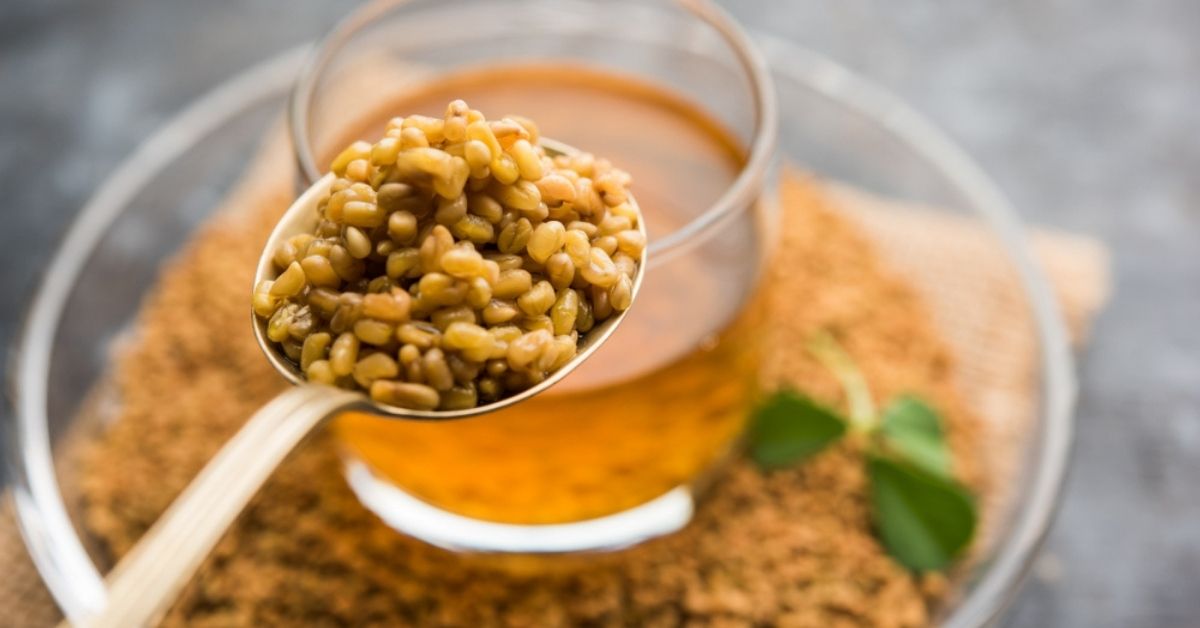With the rise in health issues afflicted by unhealthy lifestyles, several medicines and surgical procedures have been developed to shed those extra kilos. But such mediums often prove to have side effects which can affect the body in other ways.
Here’s when most turn to home remedies and natural ingredients that are purported to promote weight loss without causing any side effects.
One such superfood is fenugreek (methi), a herb that has been gracing our household dishes and remedies since time immemorial.
Fenugreek, also known as trigonella foenum, is a herb of the Fabaceae family.
It is cultivated across eastern Europe and India and used in various ways in native cuisines. In India, methi dana can be spotted in various stir-fried dishes and curries, while its crushed powder brings flavour to pickles, dals and preparatory powders.
However, this tiny herb has health benefits that scientists are hailing even today. Here’s what they have to say:
The Key to Balanced Nutrition
The small yellow seeds are known to be rich in nutrients like protein, fibre, vitamin A, vitamin C, vitamin B6, folic acid, riboflavin and thiamin. They also contain diverse phytochemical compounds like flavonoids, alkaloids, phenolics that promote the absorption of all these nutrients in the body.
Clinical nutritionist Priyanka Jaiswal of Delhi tells us that fenugreek is also a powerhouse of minerals like copper, potassium, calcium, iron, selenium, zinc, manganese, and magnesium. “Most people think of proteins and fibres when it comes to cutting inches, but one of the main reasons why many people are unable to lose weight is mineral imbalance. A spoonful of fenugreek contains enough minerals to meet your dietary needs and the phytochemicals ensure that most of them are absorbed by the body,” she reveals.
While there is not yet enough data to determine how these compounds work, it has been established that phytochemicals are capable of identifying compounds on the basis of their being nutrients or not.
Curbing Unnecessary Eating
Galactomannan is a soluble fibre present in fenugreek. By its nature, such fibres cause the digestive tract to expand, which triggers the feeling of being full. This goes a long way in curbing the excessive appetite, which has a passive effect on weight control.
A study conducted a six week randomised placebo-controlled trial on 39 overweight male volunteers in 2009. Upon division, one group received 10 gm of fenugreek seeds soaked in hot water while the other did not.
The target group recorded a decrease in daily fat consumption, which is defined as the ratio of fat energy consumed to total energy spent.
Stop Obesity From Leading to Diabetes
According to the American Diabetes Association, insulin resistance is a symptom of diabetes and has been positively correlated with Body Mass Index (BMI), waist circumference, and ailments like high cholesterol and blood pressure.
In such a case, the body is unable to identify and use present insulin levels in the bloodstream. Hence, an extra amount of blood sugar is created to cope with the energy requirements.
Fenugreek has been proven to have a hypoglycemic effect on the body, which helps in this case. This means that its fibre content is responsible for lowering blood sugar levels by slowing down the digestion of food, even in Type 2 diabetic patients, as per this experiment.
In synergy with this process, this study recorded insulin sensitisation up to 97 per cent. This happens because the slowed digestion in the presence of phytochemicals allows for increased glucose infusion in the blood streams of the test subjects.
This explains how fenugreek lowers excessive blood sugar levels while helping the body in identifying naturally occurring insulin levels for better functioning.
Priyanka says that to make the most of this herb, one should soak a few seeds in water and drink the liquid first thing in the morning.
“If consumed on a full stomach, the ingredient will only work on the undigested food and nutrients, but the body reboots in the morning. This is the time when the effect will work on any excessive sugars, fats and toxins that may be stored in the body,” she explains.
Edited by Yoshita Rao
If you found our stories insightful, informative, or even just enjoyable, we invite you to consider making a voluntary payment to support the work we do at The Better India. Your contribution helps us continue producing quality content that educates, inspires, and drives positive change.
Choose one of the payment options below for your contribution-
By paying for the stories you value, you directly contribute to sustaining our efforts focused on making a difference in the world. Together, let's ensure that impactful stories continue to be told and shared, enriching lives and communities alike.
Thank you for your support. Here are some frequently asked questions you might find helpful to know why you are contributing?

